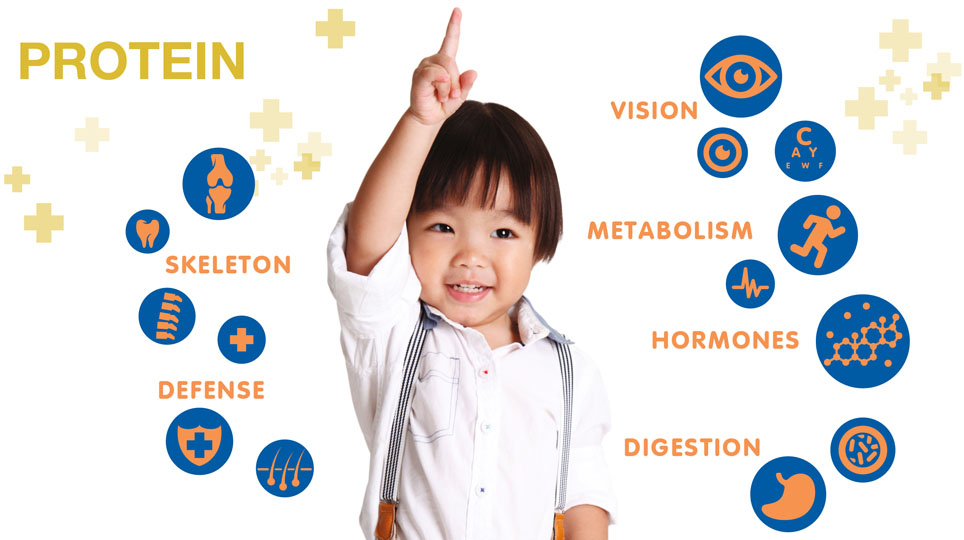While junior needs proteins to develop healthily, make sure to give them quality amounts to ensure steady growth.

Known as “bricks of life”, proteins are the body’s most abundant substance after water. All muscles and organs are largely composed of them.
Proteins serve a very wide variety of functions including being structural elements, immune system components, environmental protectors, hormones, biocatalysts (enzymes) and other specific functions.
These include:
* Vision ― Rhodopsin protein is necessary for normal vision.
* Metabolism ― Enzymes are proteins that control the metabolism.
* Hormones ― Many hormones are proteins.
* Digestion ― Digestive enzymes are proteins.
* Skeleton ― Protein forms a large proportion of the skeleton.
* Defence ― It is an important building block of your skin, nails, hair and immune system.
Are you giving your child too much protein?
Not only is food abundantly available in a developed society like Singapore, it’s also a cultural habit for food to be linked with showing affection. Chubby children have been traditionally preferred ― worse, many parents tend to perceive a healthy child as too skinny.
Proteins are the body’s most abundant substance after water. All muscles and organs are largely composed of them… Proteins serve a very wide variety of functions.
Yet, for the longest time, fat was regarded as the culprit in weight problems. In fact, not many people realise that protein also contributes to a person’s calorie count. Recent studies have shown that early protein intake during infancy and childhood could have a significant effect on weight gain ― and those who gain more weight seem to have more body fat.
Both quality and quantity count in your child’s protein intake
Your child’s diet, especially how much and what type of proteins they consume as infants, may have long-lasting health effects. Recent evidence has shown that too much protein in your child’s diet may increase their risk becoming obese in the future.
Your child has specific protein needs, so, the quality and amount of protein you give your little one makes a difference in their growth and development. Therefore, it’s important to give them the right amount of high-quality proteins to ensure steady and healthy growth, that is, not too fast and not too slow.
Parents who control their offspring’s diet well throughout infancy and childhood have the opportunity to influence their child’s health positively when they become adults. So, choose the right amount of high-quality proteins ― you aren’t just making a big difference in your child’s growth, you are helping them to build a strong foundation for life.

Brought to you by Nestlé Baby & Me.
Photo: Nestle
Like us on Facebook and check SmartParents regularly for the latest reads!
Elsewhere on SmartParents.sg…
12 tactics to “grow” a healthy eater